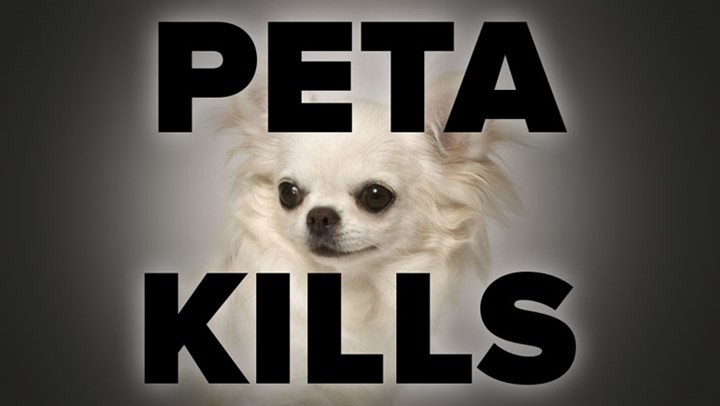
by Brian McCombie - Tuesday, August 22, 2017

Recently, the self-appointed guardians of the animal world known as People for the Ethical Treatment of Animals (PETA) were court-ordered to pay a $49,000 fine for killing a family’s pet Chihuahua at PETA’s Norfolk, Va., animal shelter.
As the Associated Press reported, “Wilber Zarate had sued PETA for taking his daughter’s Chihuahua from a mobile home park on [Virginia’s] Eastern Shore and putting it down before the end of a required five-day grace period. Zarate had alleged that PETA operates under a broad policy of euthanizing animals, including healthy ones….”
In 2014, according to the lawsuit, two women affiliated with PETA traveled to a mobile home park in Accomack, Va., after the park’s owner had asked PETA for help in rounding up some stray animals. While they were there, “The women removed an unattended and unleashed Chihuahua named Maya, which was a Christmas present to then 9-year-old Cynthia Zarate. Maya was put down later that day, a violation of a state law that requires a five-day grace period. PETA was fined $500 for the violation.”
But PETA settled before the trial, scheduled for September 2017, no doubt to avoid what would have been extremely negative publicity.
The staunchly anti-hunting PETA has always claimed it was a protector of animals, helping “as many as 25,000 animals a year, spaying and neutering many for free. But the shelter’s euthanasia rate—it put down more than 1,400 of about 2,000 animals in 2016—has drawn criticism from some in the so-called ‘no kill’ shelter movement.”
This is not the first time PETA’s been taken to task for killing abandoned or stray pets. Earlier this year, Will Coggin, director of research for the Center for Consumer Freedom, publicly called out PETA for the high death rate at its animal shelter.
“PETA’s disregard for the lives of animals is disgraceful,” Coggin told Fox News. “It would be better if PETA never even touched the animals, that way they might actually have a chance at life. PETA holds itself out as a savior, but it is really just a Grim Reaper.”
To explain the high kill rates at its animal shelter—year to year, between 70- to 80-percent—PETA maintains it takes in sick and aggressive animals no other shelter would.
Maybe so. But PETA certainly has the available funding to provide long term care for these animals and/or to do a better job promoting their adoptions. Even the ultra-liberal Huffington Post has been critical of PETA’s shelter practices.
The Huffington Post found that PETA took in some $51 million in 2014 alone. “They finished the year with $4,551,786 more in the bank than they started, after expenses.” Yet, in that same year, “The group euthanized 2,454 of its 3,369 cats, dogs and other animals, the vast majority of which were ‘owner surrenders,’ meaning that they’d been relinquished to the group voluntarily. Just 23 dogs and 16 cats were adopted.”
All of which will sound very familiar to regular readers of the NRA Hunters’ Leadership Forum (HLF) website, NRAHLF.org. In 2016, NRAHLF.org reported on one former PETA employee who told of how PETA regularly killed healthy, adoptable dogs and cats at it shelter.
Then earlier this year, another NRAHLF.org story noted that PETA’s adoption rate was just 2.9 percent, with a kill rate of more than 70 percent. At the same time, other private animal shelters in Virginia report kill rates of only 10 percent.
Is this what PETA considers ethical treatment of animals? Then it appears the title of “Grim Reaper” is quite fitting.
E-mail your comments/questions about this site to:
[email protected]
Proudly supported by The NRA Foundation and Friends of NRA fundraising.
